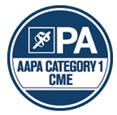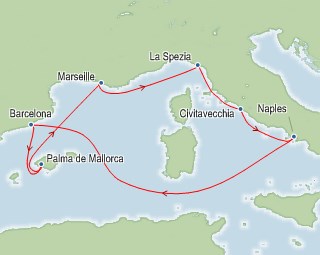
COURSE CREDITS & HOURS
AMA PRA Category 1 Credits™12 ACPE Credits
3 Hours of Pharmacology for NPs
COURSE FEES
TARGET AUDIENCE
PROGRAM PURPOSE
Geriatrics:
This is an opportunity for you to review and update your geriatric knowledge for practical application to your older patients. The following will be covered:
- Update on delirium: prevention, diagnosis, and management
- Wet and worried: how to help your patients with urinary incontinence
- Photographic review of the geriatric physical examination: what is normal aging and what is pathologic
- Practical applications of functional assessment for frail patients: how to maximize benefit from your health care team
- Successful aging: how to stay sharp and fit as the birthdays fly by
- Polypharmacy: more is not better
- Preventative care for older patients: get your shots and dont fall
Topics:
- Overview of Mass Casualty Incidents (MCI)
- To determine the general factors relevant in a MCI, be familiar with the definition and goals of terrorism, the history of terrorist attacks, and the most common types of mass casualty disasters
- Pre-Hospital MCI Management
- Participants will be able to identify priorities (TRIAGE/SORT) of field and early hospital management, discuss the function and structure of pre-hospital triage and Incident Command.
- The participants will be able to discuss their own management system and together we will determine strategies.
- MCI Peacetime Preparation Principles of Mass Casualty Management
- All resources needed to prepare the participants' organization for a mass casualty incident.
- We will analyze together the gaps in equipment, personnel, and surge capacity in order to return to hospitals to update.
- The role of the medical director
- To learn to act as a key person in MCI
- Education and MCI preparedness
- The aim of this lecture is to review the existing educational pathways for healthcare preparedness for an MCI.
- Non-Conventional Disasters
- Anticipated radiological, nuclear, chemical and biological scenarios will be described.
- Best possible treatment plans will be explained.
- This talk will familiarize the participant with the terms and concepts that are unique to the medical management of mass casualties, including triage, surge capacity, decontamination, and critical mortality.
- Ethical Challenges, Dilemmas and PTSD
- Assess methods for psycho-emotional support and care of disaster casualties, their families, and responders.
- We will share with the participants our experiences and lessons learned as well as results from longitudinal research studies investigating medical teams in Israel.
- Delirium (prevention, diagnosis, and management)
- Apply the Confusion Assessment Method to diagnose delirium, Identify and treat underlying causes of delirium
- Maximize use of non-pharmachologic approaches to delirium
- Wet and Worried: How you can help Patients with Urinary Incontinence
- Identify the types of urinary incontinence. Select practical appropriate treatment strategies for patients with urinary incontinence.
- Geriatric Physical Assessment: What is Normal and What is Not
- Recognize the challenges to a quality geriatric physical examination.
- Distinguish between clinical signs of normal aging and pathological findings in physical examination through a photographic review.
- Critical Geriatric Perspectives: Frailty,Debility, and the Importance of Functional Assessment
- Define debility and frailty.
- Identify the different functions included in Activities of Daily Living and Instrumental Activites of Daily Living.
- How to utilize the health care team to assist your patients maximize functional status.
- Successful Aging-How to Stay Sharp and Fit as the Birthdays fly by
- Discover top tips for keeping a sharp mind and body for yourself and your aging patients.
- Polypharmacy: More is not Better
- Recognize polypharmacy and prioritize treatment medications
- Select practical regimens for improved medication compliance.
- Employ geriatric prescribing prinicples such as "start low and go slow" to lessen adverse outcomes.
- Preventative Care for Older Patients: Get your shots and don't fall!
- Implement current adult immunization schedule specifically influenza, pneumonia and shingles vaccines for older patients
- Analyze the root cause of falls and implement appropriate preventative strategies.























































